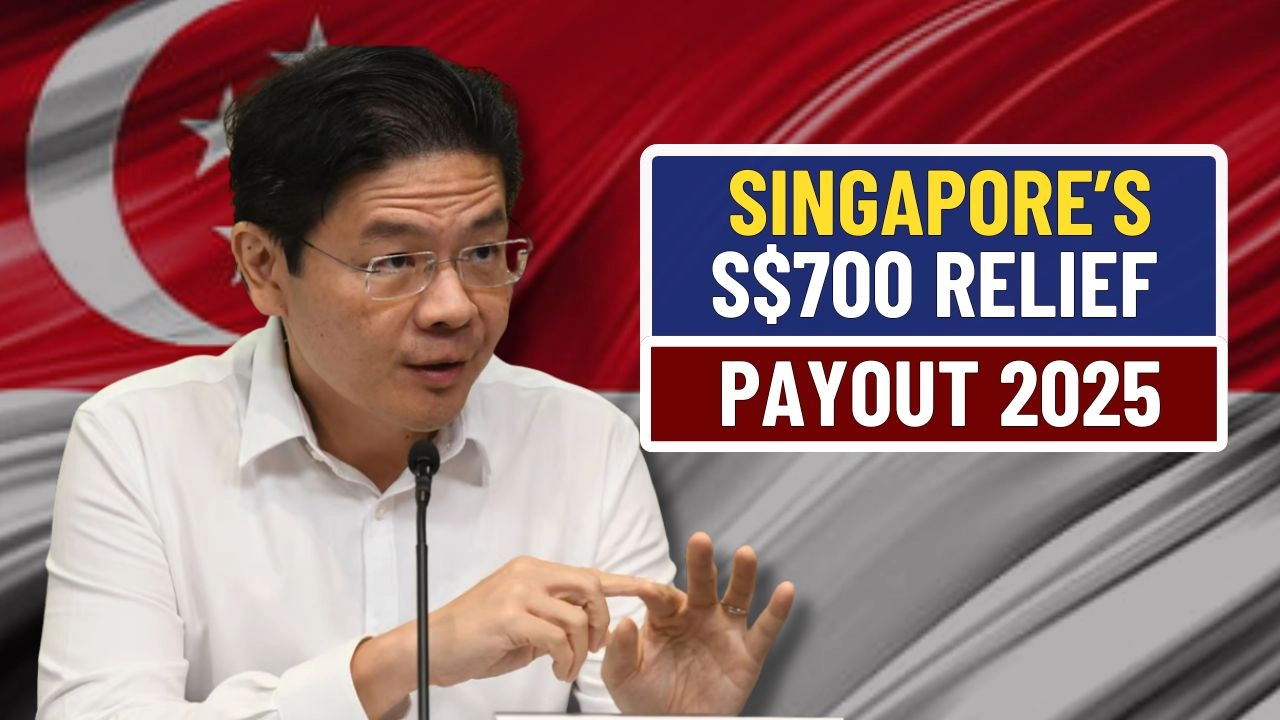To combat the growing financial pressures brought on by inflation and a rising cost of living, the Singapore government is preparing to introduce a substantial financial assistance scheme in 2025. At the heart of this initiative is a one-time S$700 cash payout aimed at easing the burden for low- and middle-income residents. This carefully structured support plan is part of a wider strategy to sustain household resilience amid ongoing economic uncertainty.
Clarifying the Criteria for the 2025 Cash Support Scheme
To qualify for the S$700 payout, several eligibility factors have been outlined. Applicants must be Singaporean citizens aged 21 or older by the close of 2025. A further condition restricts eligibility to individuals who own no more than one property, ensuring that the funds are directed toward households with fewer financial assets and greater need.
When and How the Cash Support Will Be Delivered
The government has scheduled the disbursement of this payout for December 2025. The payment structure varies by age group to ensure that support is matched to financial need. Citizens aged 21 to 59 will receive S$600, while seniors aged 60 and above will be granted S$800. This variation reflects a nuanced understanding of the challenges older residents may face and is designed to offer enhanced relief to those in retirement or nearing it.
Complementary Financial Aid Beyond the Main Payout

The S$700 payout is part of a broader package of financial support initiatives. In addition to the direct cash support, the government is also expanding its Assurance Package to include other forms of assistance that aim to improve everyday affordability for Singaporean households. These measures are targeted not just at immediate relief but also at strengthening community and household resilience.
Expanding Value with CDC Vouchers
Singaporeans can also expect to benefit from a significant extension of the Community Development Council (CDC) Voucher program. The total amount of S$800 will be disbursed in two installments: S$500 in May 2025 and the remaining S$300 in January 2026. These vouchers can be redeemed at participating local merchants and hawker centers, helping families reduce out-of-pocket spending on food and daily necessities.
Utility Rebates for Everyday Household Management
Along with cash and vouchers, the government will also offer quarterly U-Save rebates to qualifying HDB households. These rebates, ranging between S$440 and S$760 annually, are designed to help offset the growing costs associated with electricity and water usage. Spread out over the year, these rebates help smooth utility expenses and lighten the monthly financial load for qualifying residents.
Supporting Green Living Through Climate Vouchers
To promote environmental sustainability while easing household costs, the government will issue Climate Vouchers worth S$400 per household. These vouchers are intended to encourage the purchase of energy-efficient appliances, helping residents save on electricity in the long term. Specific information on how and when these vouchers will be distributed is expected to be released in the coming months.
Ensuring Smooth Transactions Through Accurate Personal Information
Eligible recipients must ensure their personal information is accurate and updated to receive any of the upcoming payouts or benefits. Using Singpass, residents can check their eligibility and revise bank account details or other necessary records through the government’s online platforms. Having up-to-date information on file is key to avoiding payment delays and ensuring funds are received without issue.
A Strategic Response to Evolving Economic Realities
With these comprehensive measures set to launch in 2025, Singapore is once again demonstrating its readiness to support citizens during challenging financial times. The S$700 payout, in combination with CDC vouchers, utility rebates, and green living incentives, offers a multi-layered approach to financial resilience. Singaporeans are encouraged to stay informed, prepare their documents, and take full advantage of these timely interventions designed to navigate the evolving economic landscape.


